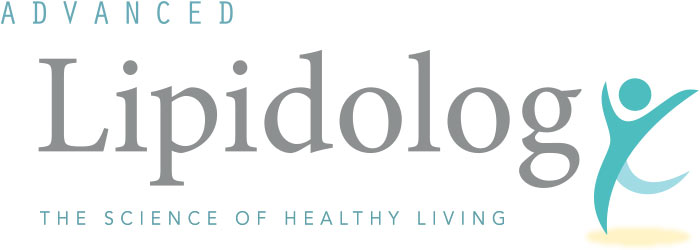Traditional tests for cholesterol provide results for four different types of lipids.
- Total cholesterol
- LDL (low-density lipoprotein), the “bad cholesterol”
- HDL (high-density lipoprotein), the “good cholesterol”
- Triglycerides, another form of fat in the blood
Advanced Lipidology uses advanced testing for lipoprotein particle number and size which reveals levels of good and bad cholesterol particles. Testing for particles number and size is a much better predictor of risk than traditional lipid profiles alone.
-
- Lipid disorders are the broad term for abnormalities of cholesterol and triglycerides.
Lipid abnormalities are associated with an increased risk for vascular disease, and especially heart attacks and strokes.
- Abnormalities in lipids can be genetic, but can also be related to dietary intake, mainly carbohydrate intake.
- Many lipid disorders are associated with being overweight.
- Lipid disorders may also be associated with other diseases including:
- Diabetes
- Metabolic syndrome
- Insulin resistance
- Underactive thyroid
- Result of certain medications (such as those used for anti-rejection regimens in people who have had transplants).
Medical management of cholesterol and triglyceride disorders is associated with the reduced risk for heart attacks and strokes. This is particularly true for patients who have diabetes mellitus or other problems associated with obesity such as insulin resistance and metabolic syndrome.
